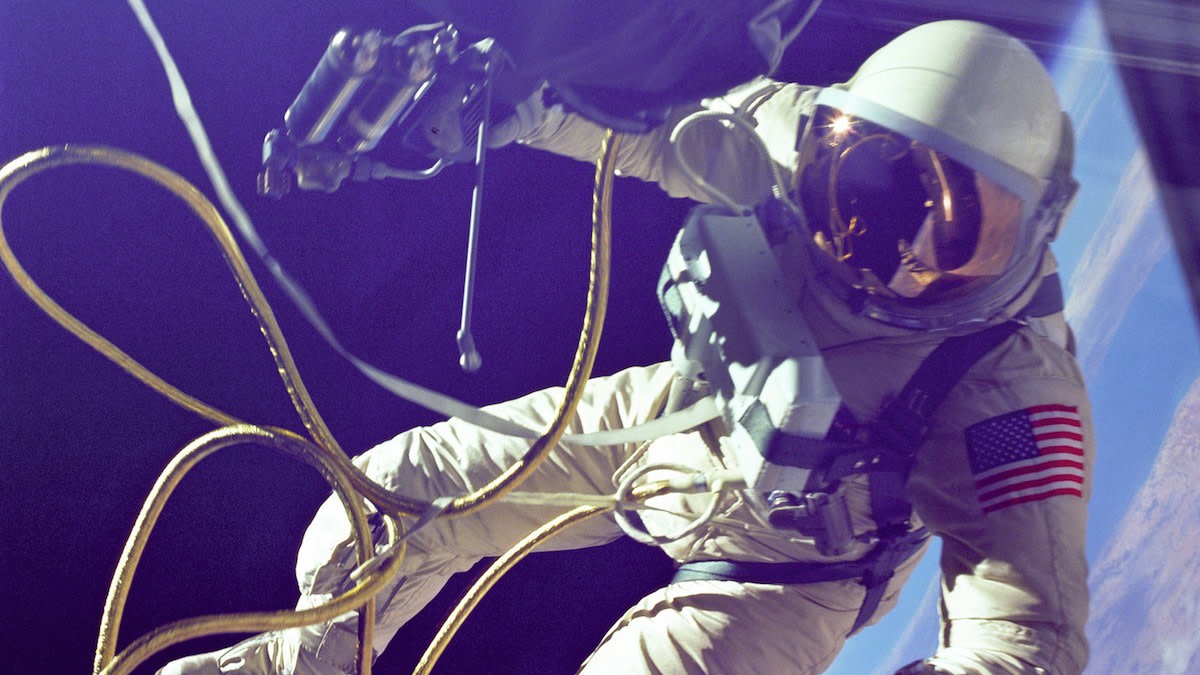Learn How to Qualify to Be a NASA Astronaut
Written by MasterClass
Last updated: Sep 29, 2021 • 3 min read
New astronauts are selected and trained based on NASA’s particular needs. Civilians and military personnel qualify, but NASA’s astronaut requirements are strict.
Learn From the Best
Short for “astronaut candidate,” ASCAN is the designation given to those chosen to undergo NASA astronaut training. ASCAN selection comes at the end of a highly competitive search process. It takes years of work to get in the door to astronaut training, but that hard-won acceptance is actually just the beginning.
What Is an ASCAN?
The astronaut personality we often see portrayed in movies is an overly dramatized version of the type of person who is actually trusted to go to space. NASA astronauts need to have cool heads and be able to calmly execute highly difficult tasks under extremely stressful situations.
As of 2019, 339 men and women have been selected as ASCANs across 20 NASA astronaut classes. Of these, around 60% have come from the military service (like the U.S. Air Force, U.S. Navy or U.S. Marine Corps), while civilian candidates have been scientists, engineers, doctors, and schoolteachers.
What Is NASA’s Astronaut Corps?
Based at Johnson Space Center in Houston, Texas, the NASA Astronaut Corps is the branch of NASA responsible for selecting and training NASA astronauts to serve on NASA spaceflights.
- Beginning with the first astronaut class in 1959, the NASA astronaut corps has supplied crew for the Mercury, Gemini, Apollo, and Space Shuttle programs.
- Currently, the NASA astronaut corps is focused on training crews for test flights and eventual missions on the International Space Station (ISS). Learn more about the ISS here.
- Future training will also help build and crew NASA’s Orion Multi-Purpose Crew Vehicle, which will be capable of carrying crew members beyond Earth’s orbit—including to Mars and near-Earth asteroids.
- Future training may also focus on training and preparing crew for missions to the International Space Station aboard commercial spacecraft, including the SpaceX Dragon and Boeing’s CST-100 Starliner, which is being made as part of NASA's Commercial Crew Development program.
What Are the Qualifications Needed to Become an ASCAN?
According to NASA, new astronauts are selected and trained based on the space agency’s needs at the time. Both civilian and military personnel are eligible to become NASA astronauts.
Qualifications for ASCANs fall into two general buckets:
- 1. Candidates must meet minimum educational and experience requirements
- 2. Candidates must pass the minimum physical requirements for long-duration spaceflight
The minimum physical requirements for long-duration spaceflight are:
- A bachelor’s degree from an accredited institution in engineering, biological science, physical science, or mathematics.
- At least three years of relevant professional experience or 1,000 hours of pilot-in-command time aboard a jet aircraft. Candidates may also substitute an advanced degree for the experience. For example, teaching at the K-12 level is considered a relevant experience.
- Candidates also need to meet certain minimum standards for eyesight, blood pressure, and height.
What Is NASA Astronaut Training Like?
ASCANs study for two years before they even qualify as rookie NASA astronauts. Astronauts need to know everything about everything that happens onboard a spacecraft.
- ASCANs cover everything from how rockets work to weather patterns, geology, electronics repair, and medical procedures.
- Survival training is a necessary part of astronaut preparation. In an emergency, a spaceship may have to undock from the International Space Station quickly and could end up landing anywhere on Earth. Since roughly 70% of our planet is water, ASCANs must learn how to use all the safety equipment in the event of a splashdown.
- Astronauts similarly need to train to survive in the Arctic and deserts. However, survival training isn’t just about preparing for emergency landings—it also helps a crew evolve and bond as a team, with mutual trust and respect under stress.
- Astronauts must also develop expertise in the human body and how it works, in order to properly conduct medical experiments and be ready to handle health emergencies on the ISS. ASCANs need to develop skills needed to deal with a range of injuries, from practicing on cadavers to treating eye injuries and burns, and on to intubating, stitching and administering an IV.
Whether you’re a budding astronautical engineer or simply want to become more informed about the science of space travel, learning about the rich and detailed history of human space flight is essential to understanding how space exploration has advanced. In Chris Hadfield’s MasterClass on space exploration, the former commander of the International Space Station provides invaluable insight into what it takes to explore space and what the future holds for humans in the final frontier. Chris also talks about the science of space travel, life as an astronaut, and how flying in space will forever change the way you think about living on Earth.
Want to become better engaged with science and technology? The MasterClass Annual Membership provides exclusive video lessons from master scientists and astronauts, including Chris Hadfield.
